9 Key Questions About Theodor Herzl’s “The Jewish State,” February 14, 1896CIE+
Nine questions guide key understandings about Theodor Herzl’s “The Jewish State.”

Nine questions guide key understandings about Theodor Herzl’s “The Jewish State.”

January 2, 2026 A week of unrest in Iran does not guarantee a revolution even if 85-plus million Iranians are angry at the country’s autocratic, theological rulers. Iran is a security-clerical oligarchy where kleptocracy, cronyism…
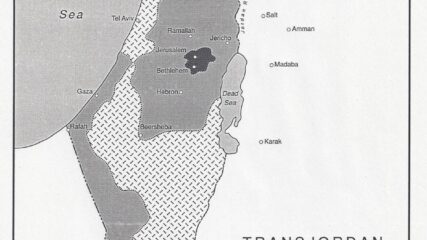
Ken Stein, President, Center for Israel Education, May 19, 2025 Introduction Since 1937, the idea of geopolitically separating Jewish and Arab populations west of the Jordan River has been a recommended solution to mitigate violence between…

Professor Ken Stein spent decades working with and researching the presidency and post-presidency of Jimmy Carter and shared many of his insights with the media and fellow scholars after the 39th U.S. president died Dec….
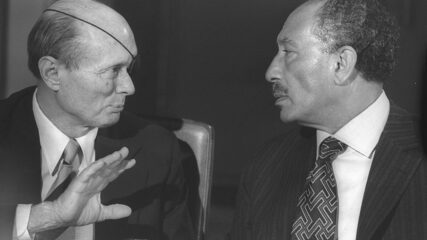
By Ken Stein, October 28, 2024 When Georgia Governor Jimmy Carter became the 39th President of the United States in 1977, he had little foreign policy experience, particularly regarding the Arab-Israeli conflict. Despite this, he…
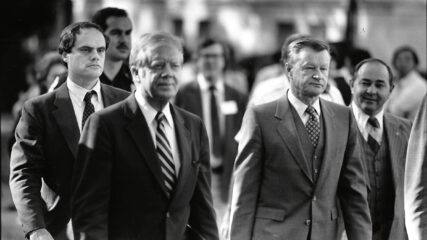
September 2024 By Kenneth Stein Kenneth Stein is Emeritus Professor of Contemporary Middle Eastern History, Political Science and Israel Studies at Emory University and President of the Atlanta-based Center for Israel Education. He is the author…
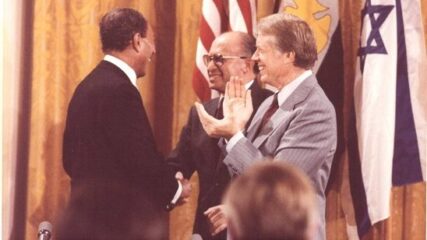
It is now apparent that distances between the Carter administration and Israel did not begin in earnest after Begin’s May 1977 election or over the settlements. Newly available materials show that from its outset, the Carter administration prioritized curbing Israeli influence in Washington.
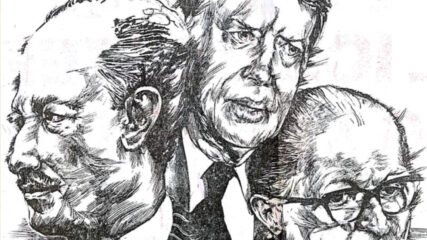
Forty years ago this month, President Jimmy Carter convened the Camp David summit between Israeli and Egyptian leaders to push Arab-Israeli negotiations forward in an unprecedented and intensive manner.

Since the June 1967 war, more than two dozen mediators have engaged in Arab‐ Israeli diplomacy seeking to clarify one underlying question: under what conditions and over what period of time would Israel relinquish land attained in the June 1967 War, and what kind of understanding or agreement from an Arab partner would Israel receive in return? The Annapolis Conference in 2007, was again a Transaction but not a Transformation of Outcomes.

Perspective provides valuable insights in evaluating contemporary diplomacy. Though neither the Palestinian-Israeli-U.S. summit of July 2000 nor the Egyptian-Israeli-U.S. summit of September 1978 ended discussions between Israel and its Arab adversaries, there were more differences than similarities between the two intense and highly charged meetings.

Kenneth W. Stein, “The Arab-Israeli Peace Process,” Middle East Contemporary Survey, Vol. XXIII, 2000, Bruce Maddy-Weitzman (ed.), Westview Press, pp. 48-76. For some aspects of Arab-Israeli relations and negotiations, the beginning and end of 1999…

Kenneth Stein, “Rural Change and Peasant Destitution: Contributing Causes to the Arab Revolt in Palestine, 1936-1939,” John Waterbury and Farhad Kazemi (eds.), Peasants and Politics in the Modern Middle East, Florida International University Press (1989), pp. 143-170….
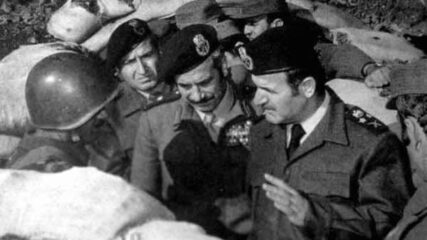
Henry Kissinger and and Hafez al-Assad meet in Damascus in December 1973 (credit: Agence France-Presse stringer, released by Getty in January 1974). By Ken Stein Sandwiched between the end of the 1973 October Middle East…
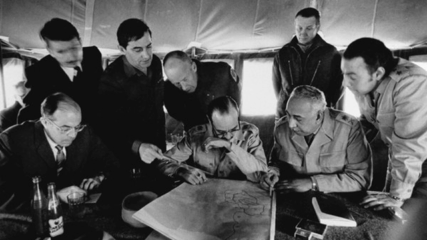
Ken Stein explains in detail how Egyptian and Israeli leaders coached their generals into reaching an understanding on how their troops would be disengaged after the war. On that day, a German-born Egyptian career foreign service officer, Omar Sirry was told to pack his toothbrush and go to meet several Israelis along with other Egyptians at the 101 Kilometer marker for talks.
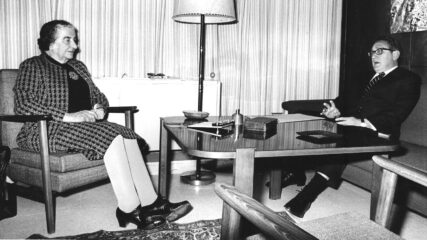
In carrying out research in the 1990s for Heroic Diplomacy: Sadat, Kissinger, Carter, Begin and the Quest for Arab-Israeli Peace, Routledge, 1999, I undertook 84 interviews with individuals who participated in the diplomacy.
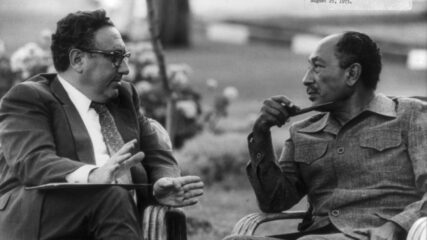
Egyptian President Sadat colluded with Syrian President Assad to attack Israel on October 6, 1973. Sadat’s objective was not to seek Israel’s destruction but to gain a limited success by crossing the canal. He also sought to engage American diplomacy to generate talks with Israel that would see Israeli withdrawal from Egyptian land Israel secured in the June 1967 War. Sadat took a large gamble by attacking Israel yet he unfolded a negotiating process with Israel that lasted through 1979. He achieved his overarching long-term priority of having Egyptian Sinai returned to Egyptian sovereignty.
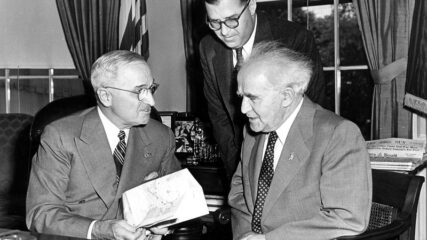
Otherwise known as Israel’s War of Independence, or, “the nakbah” or disaster to the Arab world because a Jewish state was established, the war was fought between the newly established Jewish state of Israel opposed by Palestinian irregulars, and armies from five Arab states. Official beginning of the war is usually given as May 14, 1948, the date Israel declared itself an independent Jewish state, but the war’s first of four phases began in November 1947. Lasting for two years, the war ended with armistice agreements signed in 1949 between Israel and four Arab states.
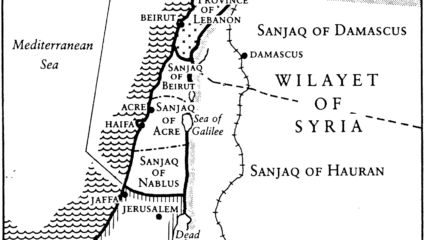
Speculation again abounds whether a two state solution might be a seriously considered outcome to Palestinian-Israeli differences. A long history of its mention but not its implementation persists. Advocacy by external voices persists, but no one seems ready to make the critical political trade-offs required.

Using published archives, press conferences, speeches and numerous interviews, this compilation of quotations traces how official American views on Zionism and Israel have evolved over a century.
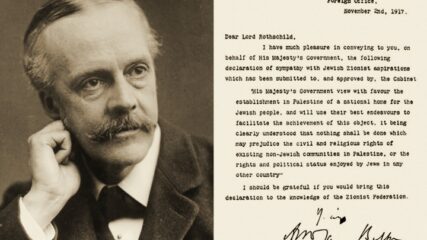
November 2, 1917 The Balfour Declaration was the Jewish charter that Herzl failed to obtain from the Ottoman sultan 20 years earlier. The terms were included in the preamble of the Palestine Mandate’s Articles in…